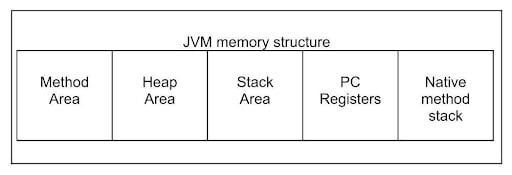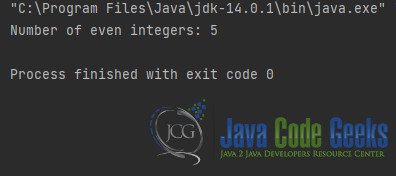Thread Safe Local Variables and Method Arguments in Java
In this article, we will explore thread-safe local variables and method arguments in Java and why this is important in a multi-threaded environment.
1. Introduction
In Java, local variables and method arguments are typically stored on the stack, which is a region of memory that is allocated for each thread. Since each thread has its own stack, local variables, and method arguments are inherently thread-safe.
However, there are some cases where local variables and method arguments may not be thread-safe. For example, if a local variable or method argument is passed to another thread or stored in a shared data structure, it may be accessed by multiple threads simultaneously, which can result in race conditions and other synchronization issues.
To avoid these problems, it’s important to use synchronization mechanisms such as locks or semaphores when accessing shared data structures. You can also use the synchronized keyword to ensure that only one thread can access a particular block of code at a time.
Another approach to ensure thread safety is to use thread-local variables. Thread-local variables are variables that are local to a particular thread and are not shared with other threads. You can use the ThreadLocal class in Java to create thread-local variables. Each thread that accesses the variable gets its own copy of the variable, which ensures that the variable is thread-safe.
2. Java Memory Model
The Java Virtual Machine (JVM) is a key component of the Java platform, providing an environment in which Java programs can run. One of the most important aspects of the JVM is its memory management system, which is responsible for allocating and managing memory resources for Java programs. The JVM memory management system is divided into several different memory areas, each with its own purpose and characteristics. In this article, we will provide an overview of the different memory areas in the JVM and their roles in the memory management process.
- Heap Memory: The heap memory is the main memory area in the JVM, responsible for storing objects created by Java programs. The heap is shared by all threads running in the JVM and can grow or shrink dynamically as required. The heap is divided into two spaces: the Young Generation and the Old Generation. The Young Generation is further divided into Eden Space, Survivor Space 1, and Survivor Space 2.
- Stack Memory: The stack memory is used to store method frames and local variables for each thread running in the JVM. Each thread in the JVM has its own stack, which is used to keep track of method invocations and to store local variables. The stack memory is allocated at the start of each thread and is released when the thread terminates.
- Method Area: The method area is used to store class-level data, such as method bytecode, static variables, and constant pool data. The method area is shared by all threads running in the JVM and is typically allocated at JVM startup.
- Runtime Constant Pool: The runtime constant pool is a special area of memory within the method area that contains symbolic references to class, method, and field constants. The runtime constant pool is used by the JVM to resolve these symbolic references at runtime.
- Native Method Stack: The native method stack is used to store native method invocation frames, similar to the stack memory used for Java method invocations. However, the native method stack is used only for native methods, which are implemented in non-Java languages and executed outside the JVM.
3. Thread-Safe Local Variables
Local variables in Java are thread-safe because they are allocated on the stack memory of a thread. Each thread running in the JVM has its own stack, and local variables are allocated on the stack memory for the duration of a method invocation. Because local variables are not shared between threads, there is no possibility of concurrent access or race conditions.
Here is a simple example that illustrates the thread safety of local variables:
package gr.jcg;
public class Main implements Runnable {
public static void main(String[] args) {
Main r = new Main();
Thread t1 = new Thread(r);
Thread t2 = new Thread(r);
t1.start();
t2.start();
}
@Override
public void run() {
int x = 0;
while (x < 10) {
System.out.println(Thread.currentThread().getName() + ": " + x);
x++;
}
}
}
This is a simple Java program that creates two threads and runs them concurrently. Both threads execute the run() method of the Main class, which declares a local variable x and prints its value to the console 10 times.
The main() method of the Main class creates an instance of the Main class (r) and passes it to two threads (t1 and t2) using the Thread class constructor. Each thread is then started using the start() method, which causes the thread to begin executing its run() method.
When the program runs, the two threads execute concurrently and print their output to the console interleaved with each other. Because each thread has its own stack memory, the local variable x declared in the run() method is unique to each thread and does not interfere with the other thread’s execution.
4. Thread-Safe Local Variables in Streams
In Java, streams provide a convenient and powerful way to process collections of data. When working with streams, it is important to understand the thread-safe local variables used within stream operations.
Local variables declared inside a stream pipeline are thread-safe, as long as they are effectively final. An effective final variable is a variable that is not assigned after its initial value is set. Because effectively final variables are read-only, they are safe to use in a multi-threaded context.
It is worth noting that local variables used inside a stream pipeline should not be modified by side-effecting operations, such as incrementing a counter or appending to a list. Doing so can lead to race conditions and synchronization problems. Instead, consider using the collect() method to accumulate the results of a stream pipeline into a thread-safe collection or using synchronization mechanisms such as locks or atomic variables to ensure thread safety.
The reason for this is that streams are designed to be processed in parallel by multiple threads, which means that multiple threads may attempt to modify the same shared variable concurrently. When a side-effecting operation is used to modify a local variable inside a stream pipeline, it can lead to race conditions and synchronization problems.
For example, consider the following code that uses a stream pipeline to count the number of even integers in a list using a side-effecting variable:
package gr.jcg;
import java.util.Arrays;
import java.util.List;
public class Main {
public static void main(String[] args) {
List<integer> numbers = Arrays.asList(1, 2, 3, 4, 5, 6, 7, 8, 9, 10);
int count = 0;
numbers.stream()
.filter(n ->; n % 2 == 0)
.forEach(n -> count++);
System.out.println("Number of even integers: " + count);
}
}
In this code, the count variable is a local variable that is used to accumulate the count of even integers in the list. However, the count variable is incremented inside the forEach() method, which is a side-effecting operation. Because the stream pipeline may be processed in parallel by multiple threads, it is possible for multiple threads to modify the count variable concurrently, leading to race conditions and incorrect results.
4.1 The collect() method
To avoid these problems, it is recommended to use the collect() method to accumulate the results of a stream pipeline into a thread-safe collection, such as a List or a Set. Alternatively, synchronization mechanisms such as locks or atomic variables can be used to ensure thread safety.
Here is an example of using the count() method to count the number of even integers in a list:
Listnumbers = Arrays.asList(1, 2, 3, 4, 5, 6, 7, 8, 9, 10); long count = numbers.stream() .filter(n -> n % 2 == 0) .count(); System.out.println("Number of even integers: " + count);
In this code, the count() method is used to count the number of even integers in the list. Because the result of the stream pipeline is accumulated into a thread-safe collection (Long), there is no need to worry about race conditions or synchronization issues.
4.2 Thread-Safe Synchronization Mechanisms
Another option is to use synchronization mechanisms such as locks or atomic variables to ensure thread safety. For example, consider the following code that uses a Lock to synchronize access to a counter variable:
AtomicInteger count2 = new AtomicInteger();
Lock lock = new ReentrantLock();
numbers.stream()
.filter(n -> n % 2 == 0)
.forEach(n -> {
lock.lock();
try {
count2.getAndIncrement();
} finally {
lock.unlock();
}
});
System.out.println("Number of even integers: " + count2);
In this code, a ReentrantLock is used to synchronize access to the count variable. The lock() method is called before modifying the count variable, and the unlock() method is called after the modification is complete. By using a lock to synchronize access to the count variable, we ensure that only one thread can modify the variable at a time, preventing race conditions and synchronization problems.
5. Summary
In summary, when working with local variables inside a stream pipeline, it is important to ensure thread safety to avoid race conditions and synchronization problems. To do so, avoid using side-effecting operations to modify local variables, and consider using the collect() method to accumulate results into a thread-safe collection or using synchronization mechanisms such as locks or atomic variables to synchronize access to shared variables.
6. Download the Source Code
You can download the full source code of this example here: Thread Safe Local Variables and Method Arguments in Java






